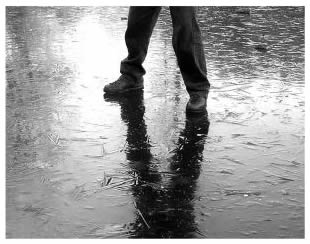 What are the symptoms?
What are the symptoms?
The most commonly diagnosed and most severe depression is called a major depressive episode. In order to be diagnosed with major depression, an individual must satisfy five or more of the following symptoms during the same 2-week period, and which must also deviate from previous functioning levels:
1. A depressed mood for most of the day, nearly every day, as reported by the individual or noted by others. Sufferers may be tearful, sad, or express feelings of emptiness. In children, depression may be expressed through irritability.
2. Little interest or pleasure in many or all of the sufferer’s usual everyday activities. This is present almost every day during the two week period, and is either expressed by the sufferer themselves, or noted by others.
3. Significant weight loss (not including intentional dieting) or significant weight gain. “Significant” is regarded as a change of more than 5% of body weight in a one month period. In children, there is a noted failure to make expected weight-for-age gains.
4. Changes in sleep patterns. There may be insomnia, or alternatively, oversleeping, unusual to the individual’s customary sleeping habits.
5. Physical agitation every day (as observed by others) or a slowing down of normal body movements. For example, the sufferer may be constantly on the move, tapping, or touching objects and putting them down only to pick them up again. Alternatively, the sufferer may move much more slowly than usual such that walking, eating, and performing routine daily tasks are all slowed down from previous activity levels.
6. Fatigue or loss of energy on a daily basis.
7. Expressed feelings of worthlessness or guilt on a daily basis. (This does not include guilt about being ill).
8. A lowered ability to think clearly and to concentrate as related by the sufferer or noted by others.
9. Recurrent thoughts of death, including suicide attempts, or plans for suicide.
Note: These symptoms do not apply if the individual has been recently bereaved, or symptoms can be attributed to the effects of an ingested substance such as an illegal or prescribed drug, or a general medical condition with similar symptoms (such as hypothyroidism). The symptoms also must cause distress in the individual and/or impair the social and occupational functioning of the sufferer.
In later articles, we will examine current treatments for depression.
Contact Beth McHugh for further information or assistance regarding this issue.

